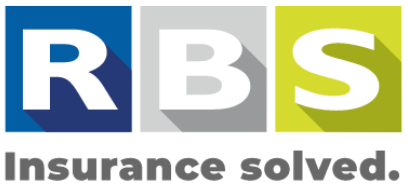In times of economic hardship, individuals may feel the weight of financial strain pressing down on them, sometimes leading to desperate measures. One such avenue is insurance fraud, a deliberate deception to gain financial advantage from insurance companies or agents. Insurance fraud manifests in various forms, from staging accidents to fabricating injuries or orchestrating complex schemes, often with severe consequences.
Take, for instance, the chilling case of former policewoman Rosemary Ndlovu, who orchestrated the murders of six family members over several years to cash in on insurance policies. While such extreme cases may grab headlines, insurance fraud in its various guises poses a significant threat to individuals and the insurance industry.
The Rise of Insurance Fraud in South Africa
In South Africa, the surge in insurance fraud has become a pressing concern, reflecting a troubling trend that demands attention. According to the Forensic Standing Committee of the Association for Savings and Investment South Africa (ASISA), 2022 marked a startling increase in fraudulent activities within the insurance sector. A staggering total of 8,931 cases of fraud and dishonesty were identified by life insurers and investment companies, shedding light on the pervasive nature of this issue.
Funeral insurance emerged as a particularly vulnerable area, with 1,922 reported cases of fraudulent claims. This was closely followed by instances of deceit in death cover, disability cover, hospital cash plans, and retrenchment and loss of income cover. The prevalence of fraud across various insurance categories underscores the breadth of the problem, with the potential to disrupt the financial stability of individuals and institutions. Such statistics highlight the urgency of implementing robust measures to combat insurance fraud and protect the integrity of the insurance industry in South Africa.
Basic Rules for Protecting Yourself Against Insurance Fraud
To safeguard oneself against the perils of insurance fraud, vigilance is paramount. Here are some fundamental rules to follow:
- Keep personal information secure: Protecting personal information is crucial to preventing identity theft and fraud. Be cautious about sharing sensitive details and employ robust security measures to safeguard your data.
- Choose reputable insurance providers: opt for established and reputable providers when purchasing insurance. Ensure that the representative, agent, or broker is accredited to sell the insurer’s specific product. Request proof of accreditation to verify their legitimacy.
- Report suspected fraud: If you encounter any suspicious activity or suspect insurance fraud, don’t hesitate to report it. Prompt reporting can help prevent fraudulent activities and protect others from similar schemes.
Insurance fraud poses a significant threat to individuals and insurance companies, with far-reaching consequences. By staying vigilant, safeguarding personal information, and choosing reputable insurance providers, individuals can fortify themselves against the dangers of insurance fraud. In a world where financial security is paramount, taking proactive steps to protect oneself against insurance fraud is prudent.
About RBS
Risk Benefit Solutions, better known as RBS, originated as an entrepreneurial-focused services business in 1998 and today is one of the largest fully-fledged black-owned insurance brokers in South Africa and a Level One B-BBEE contributor. Celebrating 25 years in business this year, our growth has contributed to offering clients a unique approach to risk management by positioning our skilled resources as an extension of our client’s risk management team. Our company covers various services, including Insurance Broking, Risk Management, Commercial and Corporate Risk Advisors, and Corporate Vehicle Hire Services. With its head office in Cape Town, RBS has offices in Gauteng, the Eastern Cape, and globally, as represented by its board membership with WING (Worldwide Insurance Network Group).

